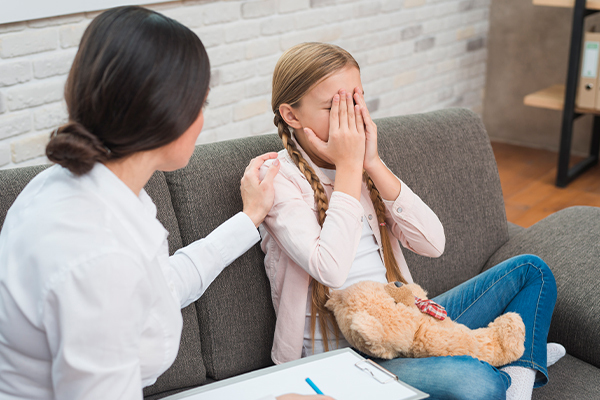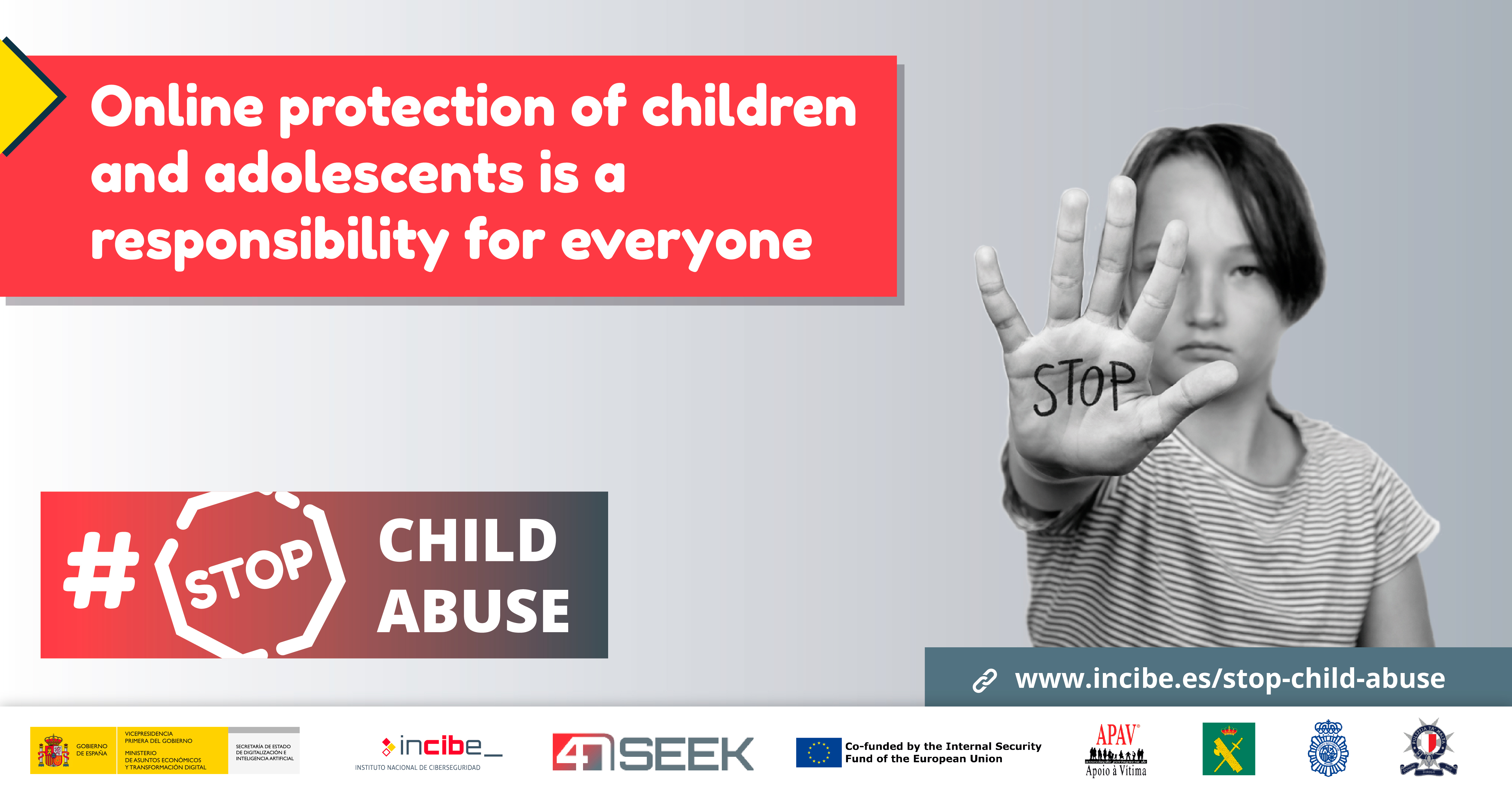Identifying the signs of online child sexual abuse

From the moment your children have access to any electronic device (whether a laptop, tablet or a mobile phone), you need to consider the security aspects around them browsing the internet. You may feel worried about bad intentioned people contacting them. That is why the digital education of children and adolescents is fundamental to prevent them from becoming vulnerable targets on line. There is always some degree of risk exposure with harmful consequences, so you need to offer them the tools they need to protect themselves, and stay alert to detect a problem of online sexual abuse.
Online child sexual abuse is a sensitive issue and it is difficult to imagine that it could affect your family. However, ignoring the problem is not the solution, it only increases the exposure to the risk and its potential harmful consequences. Children need to know what it is and how people may try to deceive them online. The problem is not just one of grooming, where an abuser establishes contact with a child online, gaining their trust in order to obtain sexual material, or cases where an adult in the child's environment physically abuses them. There may also be cases of inappropriate use of their image, such as when intimate photos are published after sexting, or when day-to-day images are placed in sexualised contexts.
Just like adults, children may always be vulnerable to hoaxes or errors. But the lack of skills for some of them on how to use technology safely and deal with problems online, increases their exposure to risks. You can find examples of this in the media worldwide. There are cases of criminals who have committed sexual coercion and extortion via the Internet. They contact adolescents on social networks or chat rooms, where they can deceive them by pretending that they are the same age or by displaying online an attractive profile. They then gain their victim's trust and persuade them to share personal details and intimate photos. Once this information is obtained, they use it to blackmail them and obtain more material with sexual connotations in exchange for not publishing the first content.
Another common example is children who have voluntarily exchanged intimate photos or videos with their partners or people who they like via a mobile phone (sexting). When the partner ends up the relationship or when there is a conflict of some kind, they may be tempted to use the content they saved to take revenge. This material may end up being published on the Internet and even used in child sexual abuse websites and online communities.
Such examples show that any child can become a victim. You should never take for granted that it won't happen to your children. That is why it is vital to be aware of the signs that could make you suspect that something is wrong.

Warning signs
Sudden changes in children's behaviour are usually a sign that something is wrong. In some cases, it is linked to the use of technology. Bear this in mind when you talk to them. Be observant and pay special attention to:
- Changes of attitude in the use of technology. Children can start to spend more time on the Internet or quite the opposite, they might avoid using social networks and other online spaces. They may also start to connect at times when they normally did other things, changing their habits.
- Sudden need for privacy when using their devices. They may often change rooms when they receive a message or call, get nervous when they check their device or become anxious or violent when someone tries to look at their mobile phone.
- Behavioural or sleeping disorders. The distress or fear caused by the situation of abuse can lead to reduced sleep or even nightmares.
- Poor academic performance. Tiredness and stress can cause poor concentration and lack of attention at school. You may therefore notice that their marks are worse than before, or that there are more mistakes in their homework or reduced participation in class.
- Social isolation or changes in social habits. You may notice that they lose contact with their friends or suddenly change their friendship circle and role models.
- Emotionally low, sad or crying. The serious nature of the problem may cause feelings of guilt and shame, which reduce their self-esteem and cause other changes in behaviour.

Take control
If you suspect that there may be a situation of abuse, you need to react. The most important thing to do is support the child, let them talk about their feelings and calmly listen to their experience. The problem is a serious one, so you should seek professional advice, but your role is no less important:
- It is essential to talk to the child calmly. You need to support them, show self-control, understanding and give them the security they need to enable the child to trust you and tell you what happened. Let them know that if they would rather talk to someone else, that is fine, and help them to arrange that conversation.
- You need to hear their version, without judging, doing your best to make them feel comfortable. It's vital to not interrupt them, give them time to express themselves, because the situation can be complex and painful. Emphasise that what happened is not their fault, that it is in fact a crime.
- Assess the risks. Find out what has happened. If the child has shared something online and with whom, if they have suffered a physical abuse as well, what is worrying them and how serious is the situation.
- Ask the child to make some screenshots of the conversations, while always respecting their privacy. It is important to preserve the evidence, images and videos to enable action to be taken against the aggressor, but act cautiously. Do not let anyone else gain access to the content.
- You should go to a professional information service, such as a helpline or the Safer Internet Centre of your country, ask for psychological guidance and report the problem to the police. That way you will have the expert support of professionals who can help you with the steps and procedures that need to be followed. Considerable care and caution are required to handle the issue, and the child should receive the maximum protection to minimise the impact to their wellbeing.
Discovering that your child is victim of a possible case of sexual abuse can be a painful process. You may feel ashamed, guilty or angry and think that you did not protect them enough. Remember that it is just as important for you to learn to manage any feelings of guilt as it is for your child.
The important part is to react fast, since time is of the essence in this type of crime. In almost every harmful or risk situation on the Internet, awareness and prevention are always the best tools for both children and their families.




